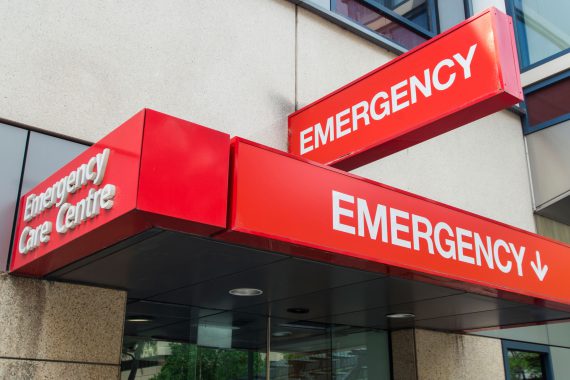£500m savings plan set to shift workload to GPs amid trust merger

GPs in one region of England may have to shoulder an increasing burden of patient care as part of radical plans to transform general practice.
Nottinghamshire’s draft sustainability and transformation plan (STP) – the blueprints for the future of the NHS currently being designed across England – has outlined how resources will be shifted to primary care following the merger of two acute care trusts.
The area is facing a funding shortfall of £500m by 2020 if it does nothing to reshape its services.
And David Pearson, STP lead for Nottingham and Nottinghamshire, said that the merger of the Sherwood Forest Hospitals Foundation Trust and Nottingham University Hospitals NHS Trust in 2017 ‘provides an opportunity’ to rethink the system.
NHS England are looking to increase the amount of services provided by primary care providers, in line with its Five Year Forward View plan to move towards new models providing both primary and secondary care.
In Nottinghamshire, this is being piloted via the Mid Nottinghamshire Better Together Primary and Acute Care System (PACS) vanguard, which aims to ‘deliver a whole system integration of hospital, community, social and primary care within a single outcomes-based capitation contract’.
But the STP reveals plans to shift work into primary care on a wider scale.
The Nottinghamshire STP says: ‘To gain clarity on the pathway to financial sustainability as a system brought about through demand management; active cost management and increased productivity; aligning resources and incentives with collective decision making; developing new contracting and payment models; service and pathway transformation resulting in improved value; together with a new model of out-of-hospital care enabling the resizing of acute hospital services.’
A spokesperson for the Nottinghamshire STP said: ‘[The proposed merger of Sherwood Forest Hospitals NHS Foundation Trust and Nottingham University Hospitals NHS Trust] provides an opportunity to consider the best ways of delivering clinical services for Nottinghamshire patients.
‘We are planning to strengthen primary and community care services to reduce unnecessary admissions and facilitate the optimum length of stay.
‘In order to address the financial gap we will continue to consider innovative new ways of delivering health and social care services that are more cost effective, improve the experience of service-users and bring care delivery into more convenient settings, closer to people’s homes.’
But GP leaders warned that moving work form hospitals to primary care will only work if this is ‘resourced’, and it would not be enough to just supply funding, according to Nottinghamshire LMC.
LMC chair Dr Greg Place told Pulse: ‘We are aware of these plans and there’s also at the same time pressures not to refer people [to secondary care services]. People are trying to watch what they do, the CCG is cutting back on funding procedures of limited therapeutic use. So there’s all sorts of things up in the air.
‘But this about sending things back to primary care is great if it’s resourced. It all comes down to the resourcing, and it is not the resource in terms of money for work done. It’s the resource in terms of the manpower needed to do the work, and it’s the resource in terms of where do we do the work, and it’s the resource for training the staff to do the work.’
Dr Place said there was ‘no point’ in commissioners telling GPs that ‘if we give you the money they you can build the premises and employ the people’.
He said: ‘That is not good enough. We can’t do that, because we are absolutely saturated at the moment. If they really want to, within the STP, remodel primary care, then it needs to be properly remodelled. We are saturated ground – pour more water on us and it will run off now.
‘There is very little flexibility within the present system, but restructuring probably needs to be done from the bottom up, starting with premises, staffing, and training.’
In other areas of the country, GP surgery numbers are being slashed as part of long-term plans to make savings.
In North London, practices with list sizes under 10,000 patients could face closure amid moves to create primary care ‘hubs’ with lists of 30,000.
And in the South West, Dorset is looking to reduce the number of primary care sites in a bid to keep remaining services open for more hours and days of the week.
Note: This article was amended at 11.12 on 18 October to correctly attribute quotes to the lead for the Nottinghamshire STP
Pulse July survey
Take our July 2025 survey to potentially win £1.000 worth of tokens












